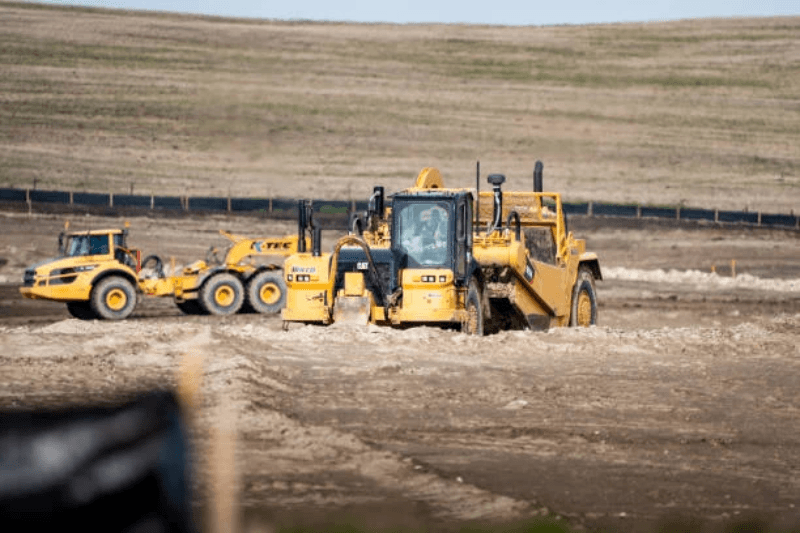
Dependable equipment plays a key role in sectors like construction, mining, and aggregate production. The decision to buy new or used aggregate equipment can have a big impact on your operations, finances, and overall success. Knowing the pros and cons of each choice is vital to making the best decision for your business needs and future plans. Click here for more helpful tips on this company.
Pros of Buying New Aggregate Equipment
The first benefit of new equipment is that it offers the latest technology and heightened productivity. New machines are often designed to maximize performance, with advanced features that streamline production, improve fuel efficiency, and boost safety. Enhanced technology boosts productivity, allowing projects to finish faster while saving on operational costs in the long term.
Reliability and warranty support are other key advantages of new equipment. New machines generally experience fewer breakdowns, which minimizes disruptions and costly repairs. In addition, new machinery usually includes comprehensive warranties, saving repair costs and offering peace of mind if issues arise. In sectors with tight deadlines, reliable equipment is vital to prevent downtime and keep schedules intact. For more info on this product view here!
New equipment purchases typically offer better financing options. New equipment's resale value and reliability make it appealing to lenders, easing financing options. This flexibility enables companies to manage expenses more effectively, making new equipment affordable for various budgets.
Cons of Buying New Aggregate Equipment
One major drawback of buying new equipment is its significant upfront expense. This investment can be a heavy financial burden, limiting funds that could be directed toward other areas of the business. This cost can strain cash flow, particularly for small or newly established businesses.
New equipment also comes with the drawback of immediate depreciation. Just as cars do, new machinery loses value swiftly, potentially making resale more challenging. Depreciation is a key factor in sectors with fluctuating markets and unpredictable demand. See, click here for more info about this!
Long lead times can also be a disadvantage when ordering new equipment. Since new equipment needs to be manufactured and shipped, the waiting period may interfere with business operations if the machinery is needed urgently. For time-sensitive projects, these delays could negate some of the advantages of purchasing new equipment.
Advantages of Purchasing Used Aggregate Equipment
Significant cost savings are among the primary benefits of used aggregate machinery. Because pre-owned equipment is typically less expensive, businesses can avoid large expenditures on machinery. Lower initial costs allow for budget allocation to other business areas, like labor, training, and maintenance. For businesses with tight budgets, used equipment is a way to get essential machinery affordably. This homepage has all you need to learn more about used equipment.
Another major advantage of used equipment is immediate availability. Because used equipment is pre-made, it can be acquired faster, bypassing production and shipping delays. This immediacy is beneficial for urgent needs, helping companies keep projects on track. Click here for more helpful tips on these companies.
Pre-owned equipment has a reduced depreciation rate, which is another key advantage. With much of the depreciation completed, the resale value of used equipment holds steady, making it easier to recoup costs if resold. For businesses that frequently upgrade machinery, used equipment can minimize financial losses due to depreciation. Here’s the link to learn more about the awesome product now!
Disadvantages of Investing in Pre-Owned Aggregate Equipment
Higher maintenance costs are a common drawback of used equipment. Used machines generally require more repairs, which can add up in costs and hinder productivity. Although upkeep is necessary, it can strain financial resources and time allocation. Click here for more helpful tips on this website about used equipment .
Used equipment often lacks warranty and financing options, which can be a drawback. Pre-owned machinery is usually sold without a manufacturer’s warranty, placing all repair expenses on the owner. Financing for pre-owned machinery can be challenging, often with higher interest rates that increase financial strain. This limited financial flexibility may complicate budget management and limit other investments. Just click here and check it out!
Making the Right Choice
Choosing whether to invest in new or used equipment requires thoughtful assessment of your business's specific needs. Understanding the advantages and disadvantages of each can lead to a well-informed decision that aligns with your budget, operational needs, and growth goals. Whether opting for new equipment’s reliability or used equipment’s affordability, making the right choice will position your business for continued success. Here’s the link to learn more about the awesome product.